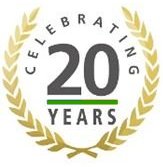|
Please Consider Helping to Keep This Website Online.
|
|
Boann Laoise Jenkins There are many legends about Boann, some of them even contradictory to others. But central to all the stories, is that Boann was a water goddess of the Tuatha dé Danaan, connected with rivers in general and the river Boyne in particular. She is represented in animal form as a white cow, and her name means "she of the white cattle." Boann was the wife of Nechtan, keeper of the sacred Well of Segais, which was a source of knowledge. Only Nechtan and his cupbearers were permitted to approach the well. Anyone else who gazed into the waters of inspiration would be blinded. But Boann ignored this geis, or taboo, and went up to the sacred well. The waters of the well rose up after her. Some stories report that she was drowned, others tell that she scaped. Still other stories state that she escaped but suffered injuries as a consequence of her disobedience. The waters that chased after Boann did not return to the well, however. They continued flowing out to the sea, thus creating a river, which was named after the daring goddess, namely the river Boyne in Ireland. Boann was also the mother of Aonghus Óg, a god representing love and youth. In these stories, Boann is the wife of Elcmar. The Dagda desires to be with Boann, and he sends Elcmar away on some sort of errand. By magic, he causes Elcmar to believe that he has been gone only a day, but it has truly been 9 months. In that time, the Dagda had his affair with Boann, and she bore him a love-child, Aonghus Óg. Variations of this story, as written by some Christian scribes, told that Boann and the Dagda were married, not lovers, to make the story more agreeable to Christian ideals of morality. Boann's name translates literally to "she of the white cattle." An earlier Irish form of her name is Bóu-vinda, meaning "illuminated cow." The first part of the name refers to a goddess in bovine form, or that of a cow. Cows are a sacred animal to the Celts. The second part of the name comes from the Celtic word "vind" which covers a range of meaning from the color white, to brightness, to wisdom. Thus Boann is the goddess represented as a sacred cow, who gives illumination or inspiration as associated with the wisdom of the Well of Segais. Sources: Contributed by: Laoise Jenkins |
|
'Clannada na Gadelica' is a trademark of the Clannada na Gadelica.
|
|
Heart in Hands
Support the |

